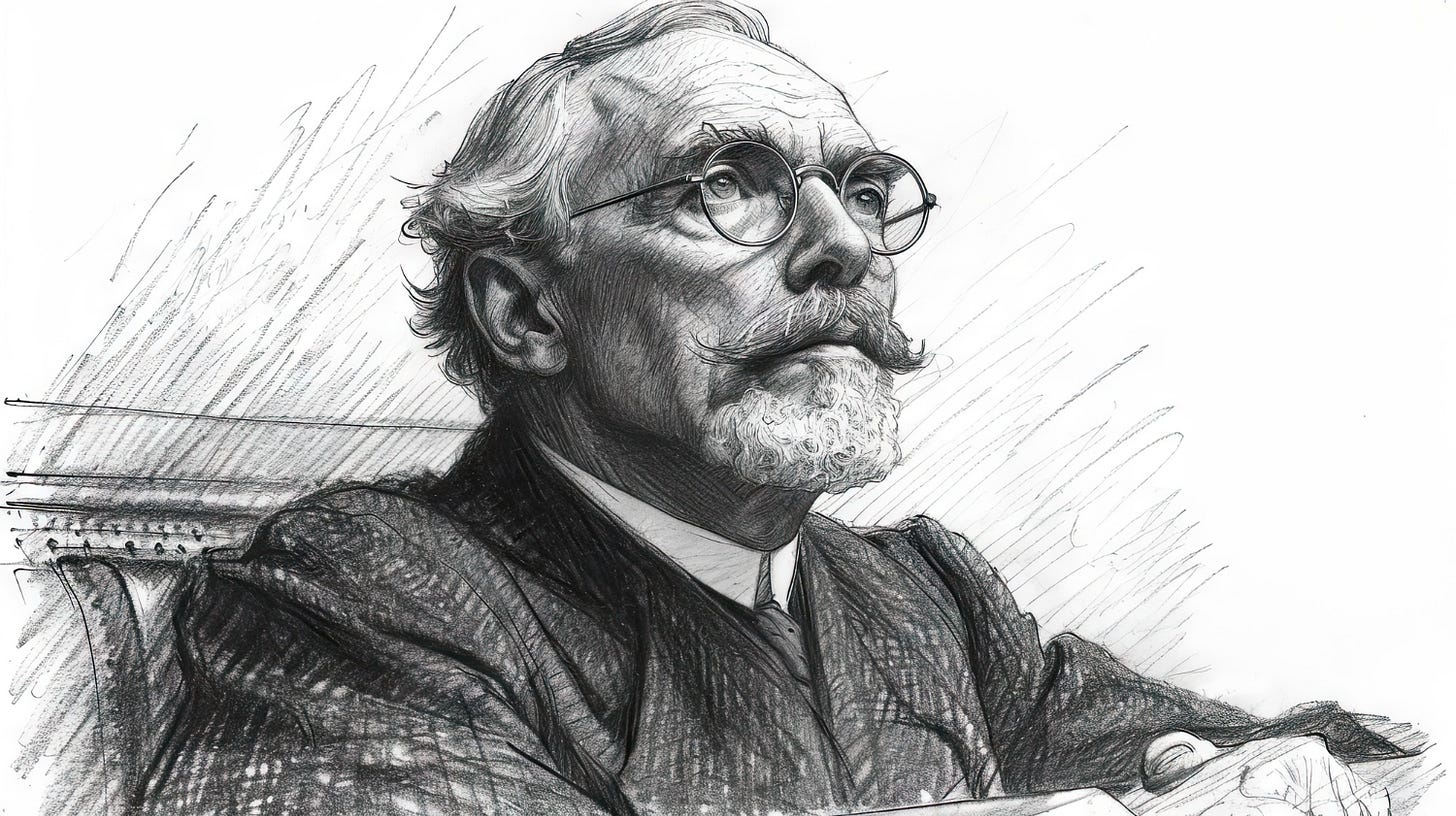5 Carl Jung Concepts That Beat Pop Psychology By 100 Years
In all chaos there is a cosmos, in all disorder a secret order — Carl Jung

Most people don’t really want to know themselves.
What they want is to feel good about their bad habits, see their past in a quote that makes them feel seen, and call that “healing.”
That’s why Modern Self Improvement is so popular. It tells you what you want to hear.
Carl Jung said things that still make people angry, like maybe your biggest problem is actually you.
Let’s look at five things Jung said that, aren’t trendy, but actually matter.
1. If You Don’t Bring the Unconscious to Consciousness, It Will Dominate Your Life and You Will Call It Fate
This is the Jung version of, "Your patterns are showing."
You keep selecting the same profession, same person, same soap opera, but with different clothing and terrible cologne. That maybe not just destiny, That is your unfinished issues with a sock puppet.
Our unconscious are not dreams and weird yearnings. It is everything you have suppressed, tuned out, or have considered not "you."
And it doesn't remain silent. It guides your decisions with all of the elegance of a toddler driving.
Maybe, you’re just unaware.
What you suppress, you repeat.
Your unconscious already influences your life.
Recognize the pattern.
To know the unconscious is to finally read the play you've been acting out for 20 years and understand you didn't write it, your wounds did.
2. The Inflated Ego Is Perpetually on the Brink of Collapse, It Is Not Strength, but a Fragile Shell
A healthy ego can have a sense of humor about itself. An inflated one can't joke, or be corrected.
Fragile egos need applause.
Real strength tolerates doubt.
Big ego = deep insecurity.
The larger the ego, the greater the fall. Because it is founded upon achievement, not reality.
If your whole sense of self cracks under gentle pressure, it might be time to stop inflating and start grounding.
The ego is not bad. You need one to function. And to push yourself and raise that bar, It's just don't fill it up with helium and expect it to hold you up, it will blow up someday.
3. The Persona Is a Mask. To Equate It With the Self Is to Be Lost in One’s Own Acting
Every time a person says "I'm such an empath" on the third date, I have an urge to scream this quote.
The persona is what you present the world. It's polished, convenient, and often lies through its teeth.
What this means? You built your personality to get by, not to thrive (Maybe blame school and collage for this? idk). It was used to placate others, avoid conflict, conform and be "normal," or whatever the game was.
The persona is survival, not self.
Masks can become cages.
As time goes by, you begin to think that the mask you wear is the real you. That's why the appearance of confidence can be hollow.
Am I the only one who feels that kind, gentle people suffer from this more?Maybe pretending a little in different situations isn’t always a bad thing.
4. Active Imagination Makes the Unconscious Speak, True Vision Begins Where Fantasy Ends
Jung did not enjoy passive daydreaming. He believed that if you really listen to your imagination, it can show you what’s going on inside you.
He wanted people to pay attention to the voices, images, and feelings that pop up, not ignore them or suppress them due to your responsibilities and stress.
Because they’re not just random.
The distinction between imagination and insight is finer than you realize. One whirs you around in circles. The other goes directly into the areas of yourself that you've been sidestepping.
5. Individuation Is Not Improving Yourself, It Is the Birth of the Whole Self in Suffering
Self improvement asks:
“How can I fix what’s wrong with me?”
Individuation asks:
“Can I live with the parts of me I’ve spent my whole life trying to hide?”
I want you to Try this instead of another to do list:
1. What part of you are you trying to change right now?
Write it down without judgment. Is it your anger? Neediness? Anxiety?Now ask: Why do I want this part of me to disappear?
What fear is underneath that?2. Imagine that part of you could talk.
What would it say? What does it need? What is it trying to protect?3. Who taught you that this part of you was unacceptable?
Was it a parent? A teacher? Culture? Yourself?
You might ask why So why does that matter? Because the more you reject parts of yourself, the more those parts run your life from behind the scenes. You don’t heal by deleting traits. You heal by understanding them. And doing it over and over again until it becomes second though.
Final Thoughts
If you're reading Jung, chances are, you're not here for ten ways to be our best selves by 9AM and make $100k per month.
Maybe, You're here because you know that there is something more, even if you don't yet quite have the words for it.
Maybe that's the point.
Wait a Sec
I share insights like this every 1-3/week—ones that actually change how you think. Don’t miss the next one.
Join 5751+ readers.
Thanks for your time 🙏





As a therapist with 40 years of tryin’ to help, I love this. Quick fixes and false attempts to get more “real” are attractive, but the slog of getting to know your true self is difficult and takes more than a few minutes. Thanks for this Jung translation.
Love this. Deepen into yourself - don't hack yourself.